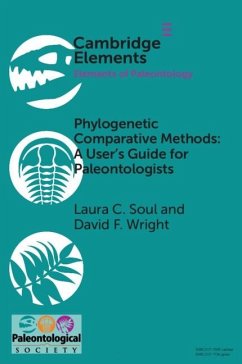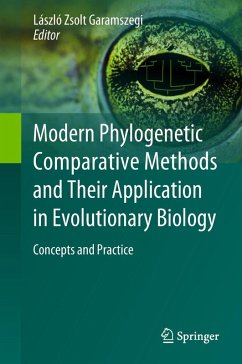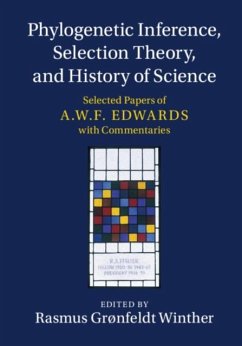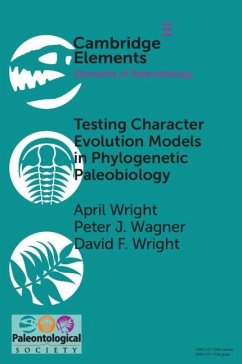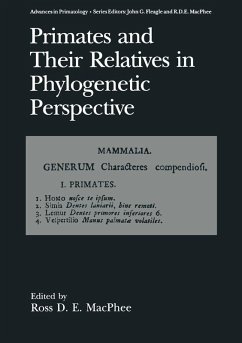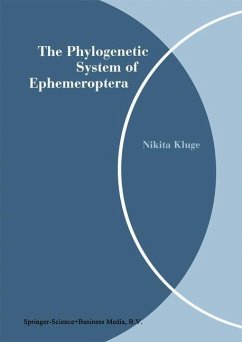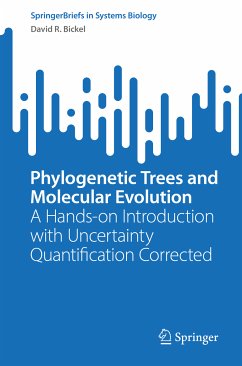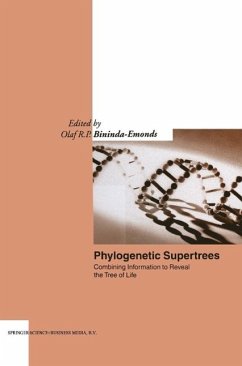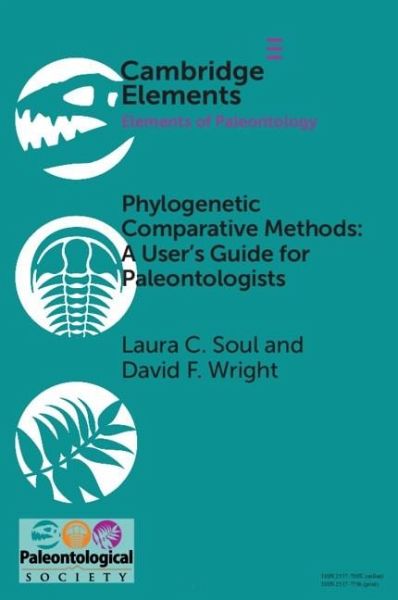
Phylogenetic Comparative Methods: A User's Guide for Paleontologists (eBook, PDF)

PAYBACK Punkte
6 °P sammeln!
Recent advances in statistical approaches called phylogenetic comparative methods (PCMs) have provided paleontologists with a powerful set of analytical tools for investigating evolutionary tempo and mode in fossil lineages. However, attempts to integrate PCMs with fossil data often present workers with practical challenges or unfamiliar literature. This Element presents guides to the theory behind and the application of PCMs with fossil taxa. Based on an empirical dataset of Paleozoic crinoids, example analyses are presented to illustrate common applications of PCMs to fossil data, including ...
Recent advances in statistical approaches called phylogenetic comparative methods (PCMs) have provided paleontologists with a powerful set of analytical tools for investigating evolutionary tempo and mode in fossil lineages. However, attempts to integrate PCMs with fossil data often present workers with practical challenges or unfamiliar literature. This Element presents guides to the theory behind and the application of PCMs with fossil taxa. Based on an empirical dataset of Paleozoic crinoids, example analyses are presented to illustrate common applications of PCMs to fossil data, including investigating patterns of correlated trait evolution and macroevolutionary models of morphological change. The authors emphasize the importance of accounting for sources of uncertainty and discuss how to evaluate model fit and adequacy. Finally, the authors discuss several promising methods for modeling heterogeneous evolutionary dynamics with fossil phylogenies. Integrating phylogeny-based approaches with the fossil record provides a rigorous, quantitative perspective on understanding key patterns in the history of life.
Dieser Download kann aus rechtlichen Gründen nur mit Rechnungsadresse in A, B, BG, CY, CZ, D, DK, EW, E, FIN, F, GR, HR, H, IRL, I, LT, L, LR, M, NL, PL, P, R, S, SLO, SK ausgeliefert werden.




